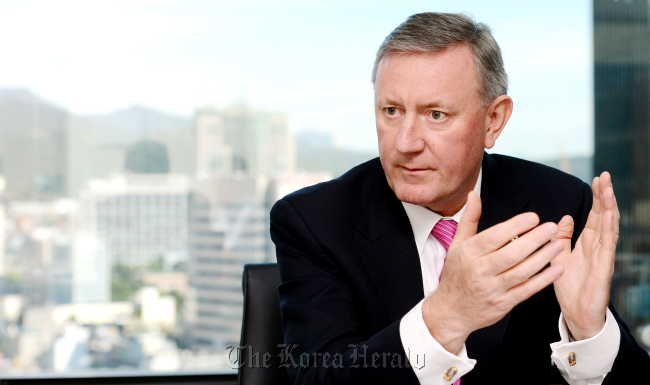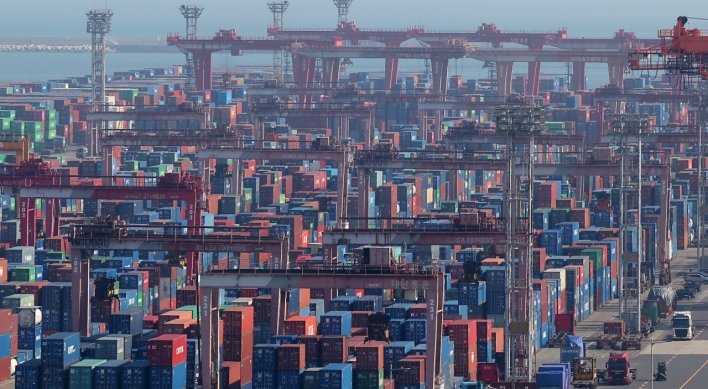CEO envisions spin-off to create biotech firm
In June 2011, Hanwha Chemical, a listed Korean chemical company, made its first landmark deal to license its newly developed biosimilar compound to Merck, a global pharmaceutical giant.
Merck will be further developing the “HD203” compound by Hanwha into a drug for joint pain.
Hanwha attributed this overseas deal to Paul Coleman, CEO of the chemical company’s bio business unit, whose primary responsibility includes identifying global pharmaceutical companies for potential partnerships.
This is just the beginning as Hanwha has more compounds ready to be developed into biosimilar drugs with the top 25 worldwide companies, many of which have shown interest.
“We have several more in the pipeline,” Coleman told The Korea Herald.

Partnerships could be in the form of joint ventures or equity investments in entities for co-development of drugs, he noted.
“Patients live all over the world. How to do we quickly make biosimilars available? One way to do that as a Korea-based company is through partnerships that have the ability to commercialize very deeply around the world.”
Biosimilars, which need to meet the highest quality standard to be approved by the authorities, are medicines that are similar to drugs that already exist and have succeeded commercially in the market.
Hanwha’s HD203 is similar to Enbrel, a drug for rheumatoid arthritis treatment.
This is one area where Hanwha Chemical seeks to expand through research and development, and provide the world with affordable and accessible drugs.
Access and cost are two vital factors for biosimilars, Coleman stressed.
“We would never know all the names or see the faces of patients who take biosimilar drugs,” he said.
“But what drives us in the passion in what we do is that we know that somewhere they will value what we spend years of developing with other companies.”
New biological entity, or development of completely new and novel compounds for autoimmune disease treatment, is another area the company is focusing on.
Coleman, who has a “long-term commitment to Hanwha,” said he envisions the bio business unit, part of new growth engines for Hanwha Group, to be a stand alone entity after a spin-off from Hanwha Chemical.
This is part of plans to become a global leading biotech firm over the next seven to 10 years and expand its workforce to 300-400 employees from some 150 currently in the bio business unit.
He said that this is possible as Korea is being viewed by the outside world as an emerging powerhouse in biotechnology, specifically in biosimilars.
“Korea is now leading, in many respects, the evolution of biosimilars equal to other advanced countries,” he added.
When Coleman joined Hanwha in early 2011, one could have wondered whether he would fit in in Korea and its corporate environment where few foreigners hold top positions.
But the country did not appear all that different to the CEO, who immediately saw many similarities with his native Ireland both historically and culturally.
Both had been occupied countries ― Ireland by Britain, Korea by Japan. Ireland had been divided by religious differences, while Korea has been by ideological differences. Northern Ireland is part of the U.K., while southern Ireland is an independent republic.
Koreans and Irish work very hard. Both also share the value of respecting elders.
Coleman, whose passions are history and architecture, said he felt strange “visually” at first, but was connected after learning Korea’s history and realizing the close resemblance of the two countries.
“If you blend Koreanness and Irishness, there’s probably more overlap than there is with other cultures,” he said.
By Park Hyong-ki (hkp@heraldcorp.com)







![[News Focus] Lee tells Yoon that he has governed without political dialogue](http://res.heraldm.com/phpwas/restmb_idxmake.php?idx=644&simg=/content/image/2024/04/29/20240429050696_0.jpg&u=20240429210658)










